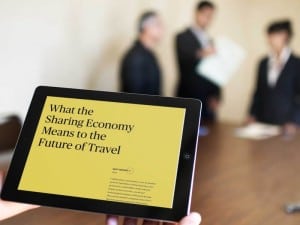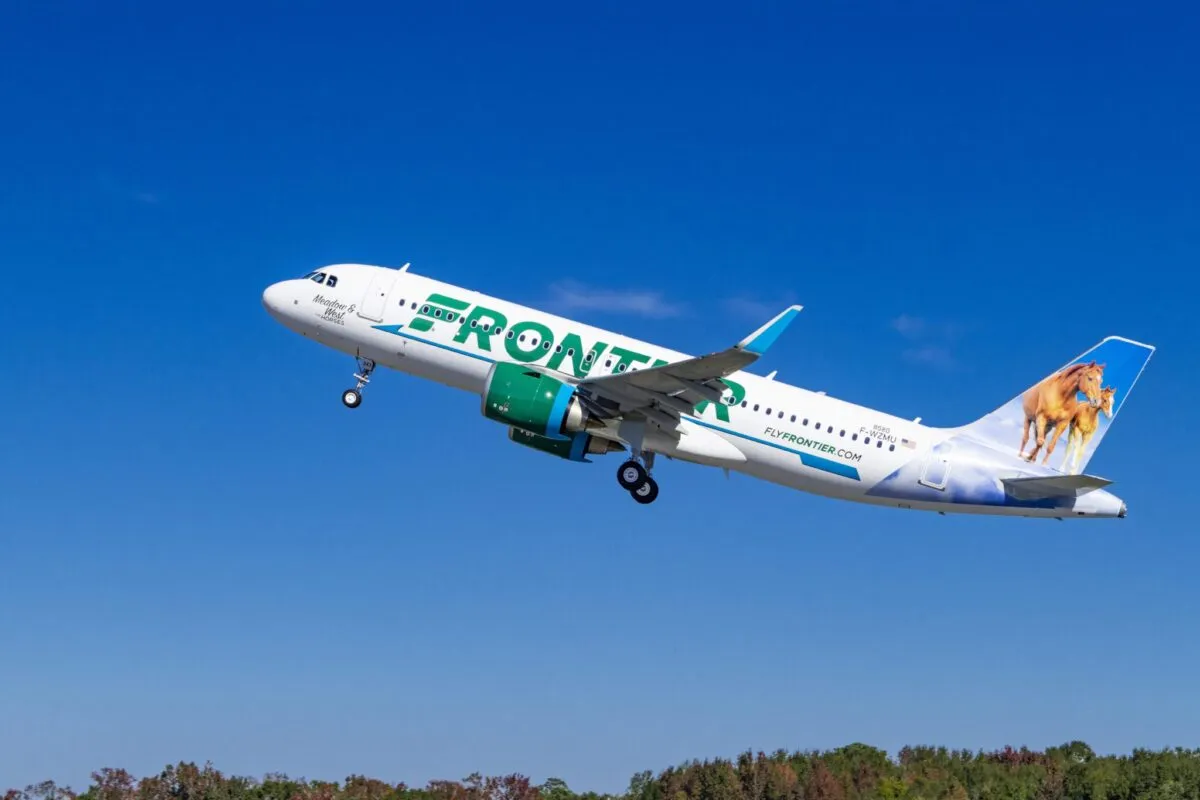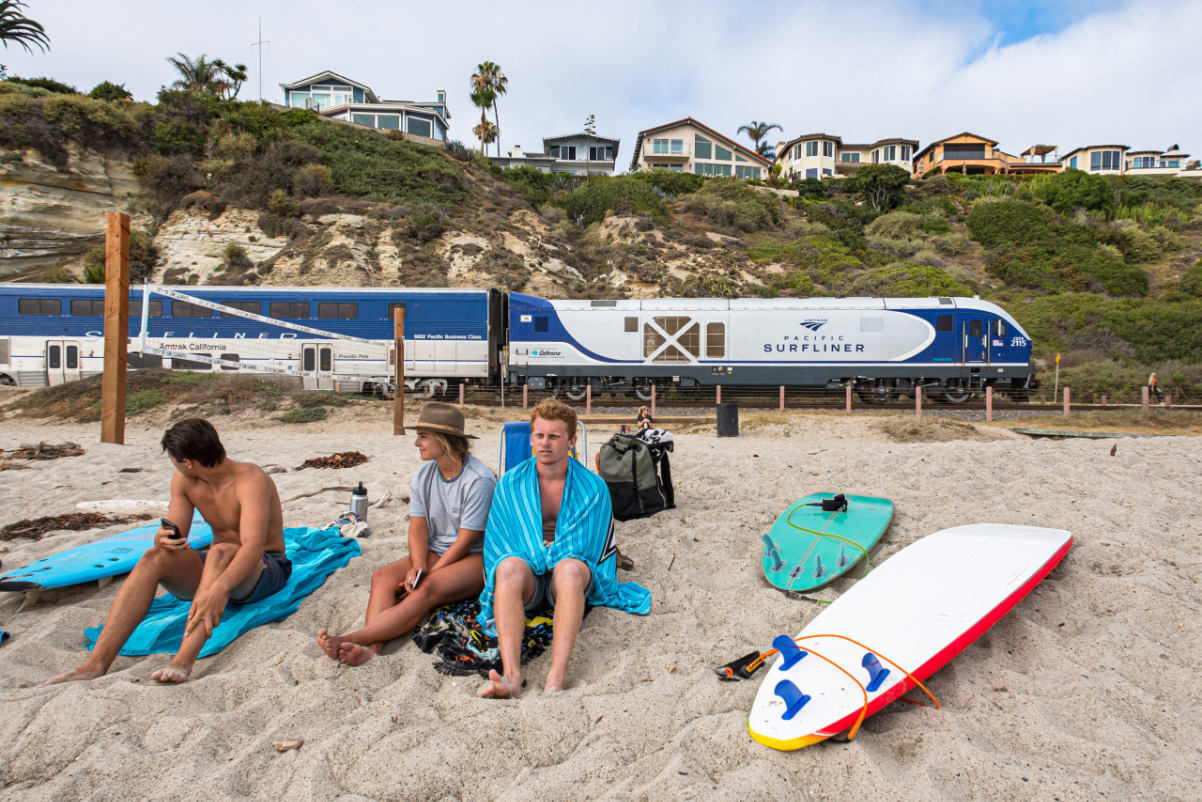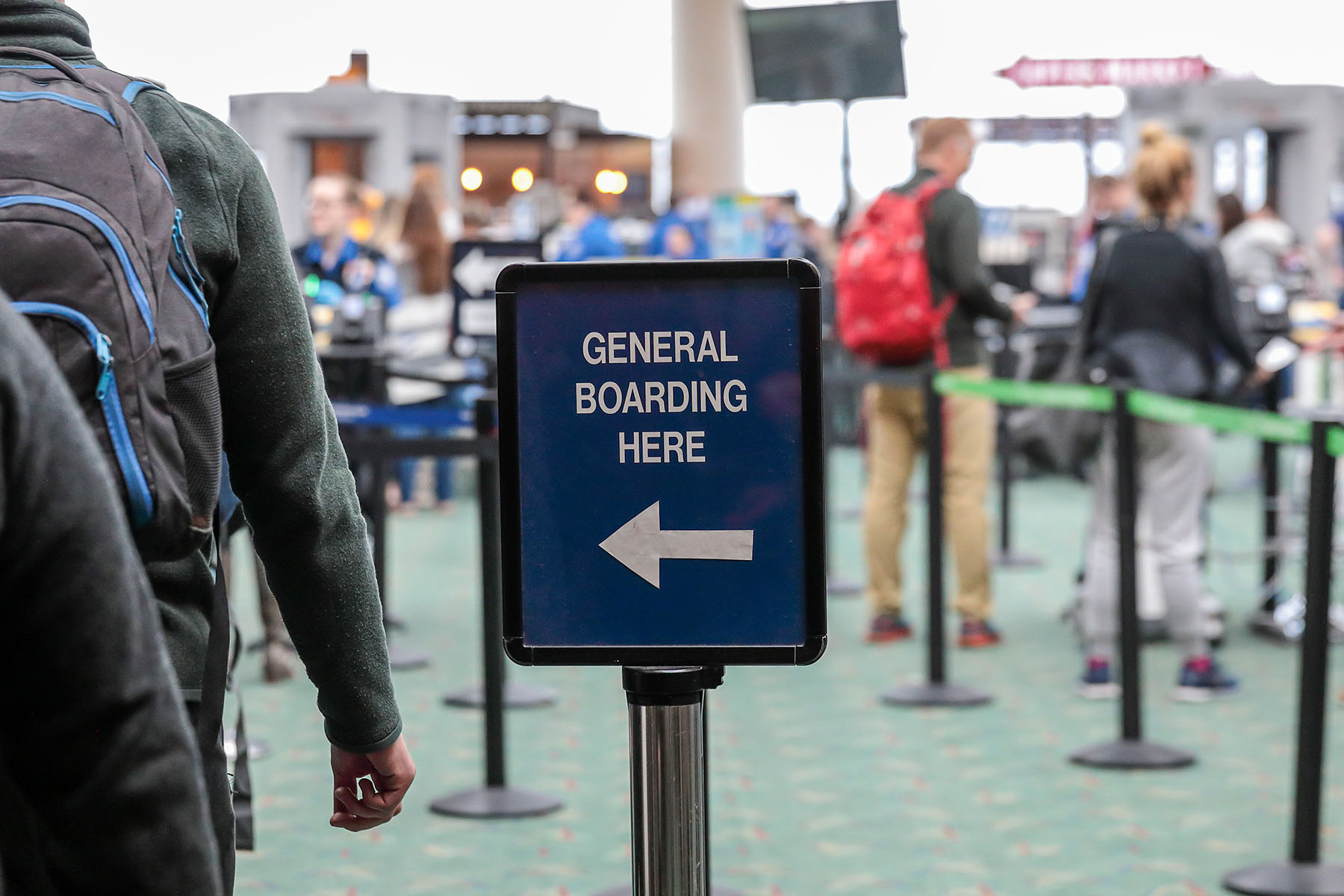Why Hotel Brands Should Care About Airbnb’s Disruption

Skift Take
Recently, Airbnb has released some super cool stats that prove what I have always believed: they are changing the hospitality business.
• They created $632 million in economic activity just in New York in one year, and they supported 4,580 jobs throughout the five boroughs.
• They have 500,000 properties worldwide.
• They have found accommodation for 9 million guests worldwide (5 million in just the past nine months).
• Over 150,000 guests stay in one of its members’ properties every night.
• They expect to pass InterContinental Hotels Group and Hilton Worldwide to become the globe’s largest hotelier next year.
This is big news for the hospitality business and hotel brands specifically. The lodging industry needs to brace itself if it hasn’t already.
So, how are they doing so well so quickly? Here’s how they went from startup to market leader in just 5 years.
Good Reviews Trump Brand Loyalty
Over the past few years, I have noticed a very interesting trend: People do not care as much as they used to about hotel brand when they plan their travel. What they care about is a hotel’s location, value, and reviews. Review websites like TripAdvisor have changed the game. Independent hotels that provide exceptional service and value get great reviews on TripAdvisor, and start moving to the top-ranked spots in their cities. This leads to a tremendous increase in brand name searches conducted by travelers who start researching on TripAdvisor and then move to Google search. In the end, this review-driven ecosystem funnels more revenue to hotels that are treating guests well.

Read more about what collaborative consumption and the sharing economy mean to the future of travel.
To make things worse for hotel brands, Airbnb is spurning an army of independent hoteliers. Brand new entrepreneurs with fresh ideas and energy are surging into the market. All of these new travel entrepreneurs have the three things travelers are looking for – location, service and value. AND, these entrepreneurs are rated within the Airbnb ecosystem by verified users. This is genius! Why? Because unlike traditional and brand hotels who rely on TripAdvisor, Airbnb closes the loop by allowing its users to trustfully book and review their stay. Transparency is a huge turn-on for today’s travel planner. Coupled with general apathy on the part of the big hotel brands, these moves make Airbnb a darling among smart travelers worldwide.
Brands Devalue Themselves
Wise folks have argued that one should not bite the hand that feeds you. There are still legions of hotel loyalty point fanatics (ie, big spenders) out there. Most of them use points accumulated during business travel to take personal/family holidays. Yet every major hotel brand (including Hilton, Starwood, Marriott and Hyatt) has devalued its loyalty point’s value in the past 12 months. Basically, it is taking you a lot more points to purchase “free” room nights. Hilton in particular was pretty harsh on its most loyal customers this year with a brazen reduction in the value of their points. Marriott has taken it to a whole new level by creating a brand new top tier called “Category 9”and updating the category level for over a third of their properties around the world! The extra effort business travelers were making to stay loyal to their hotel brand is quickly losing its value.
This is an extremely shortsighted approach to profitability. It might look great on a balance sheet today, but it is setting up the brands for huge losses in the very near future. This is opening a nice window for Airbnb, as point-obsessed business travelers learn to seek better value via alternative lodging options. I can only imagine what big plans Airbnb has in store for their loyal users.
Airbnb Builds Trust & Community
Another area where Airbnb excels is in building trust and establishing personal connections. The hotel industry has never been particularly transparent. A lot of fancy adjectives may find their way onto a hotel’s user-unfriendly website in the name of marketing. Until the year 2000, there was no place for people to go to find out the truth. This huge vacuum was filled by TripAdvisor’s launch. Since then it has been making well-deserved millions for lifting the veil on an entire industry. Airbnb, unlike the big hotel brand names, is very open about everything. Hosts and their guests communicate before the booking, during the research phase, during the availability search, upon stay confirmation, before arrival – often offering concierge style advice, at check-in (often in person!), and even post check-out.
The host is the brand, and you have access to him at every stage of your travel experience. This is a huge reason why Airbnb has seen tremendous success. Meanwhile, hotel brands are chasing rankings on Google, fighting online travel agents (OTA’s), and trying to use online strategies to boost their reviews, rankings and authenticity on TripAdvisor and other review websites. On Airbnb, there are no ‘fake’ reviews because online reviews were not an afterthought. Expectations, questions and answers are exchanged between host and guest long before the check-in ever happens. This is how they make meaningful connections. Do I remember the guy who checked me into my last hotel room? Nope. Do I remember my last Airbnb host? You bet I do.
Online Marketing Done Right
There is a lot being said about the right way to do online marketing. Hotel brands are struggling to keep up with Google and the OTA’s, who are both moving quickly and with a clear agenda of making money. Meanwhile, the big hotel brand marketing machine is blithely playing Goliath to Airbnb’s David. Every time a hotel brand does a press release stating that they would like to “target the millennial traveler,” it ironically makes the millennial traveller cringe. Hyperbole and buzzword marketing is so 1999. Talking like real people, showing your value, and showcasing your location is the new black.
A classic example of how Airbnb has captured the imagination of an entire generation is their amazing city neighborhood guides. This is the way to reach out to young travelers that are looking to explore the world. The Airbnb online marketing plan is entirely based on location, value and connection. Meanwhile, hotel brands are too caught up in their own hype, are busy funding bad experiments like Roomkey.com, or worse…counting on magical “Big Data” to save them.
Conclusion
For decades, hotel brands have been riding the inertia that was built by big demand, lack of options, and brand loyalty. The reality today is:
- Demand took huge hits in the past decade (9/11, global financial meltdown) and can’t be counted on as a strategy.
- There are a plethora of lodging options and entrepreneurs thanks to Airbnb.
- We have to acknowledge that Airbnb is rapidly becoming the biggest hospitality brand in the world.
And they are just starting. In today’s travel marketplace, brand transparency powered by innovative technology is what the people want. Give travelers the experience they are looking for: value, service, a great user interface, personal global connections, and social sharing. Mix these together, and you have a success story called Airbnb.
About the Author:
An internationally-respected speaker, Vikram delivers lectures, workshops and seminars worldwide, including an international workshop for the US Department of Commerce and featured presentations for the American Express/American Hotel & Lodging Association Educational Series. He favors topics that are often inaccessible or unfamiliar to audiences, including innovative uses of new technology, and he emphasizes action-oriented strategies that help listeners differentiate themselves in their work. Visit http://www.wordsofvikram.com to learn more about Vikram.




